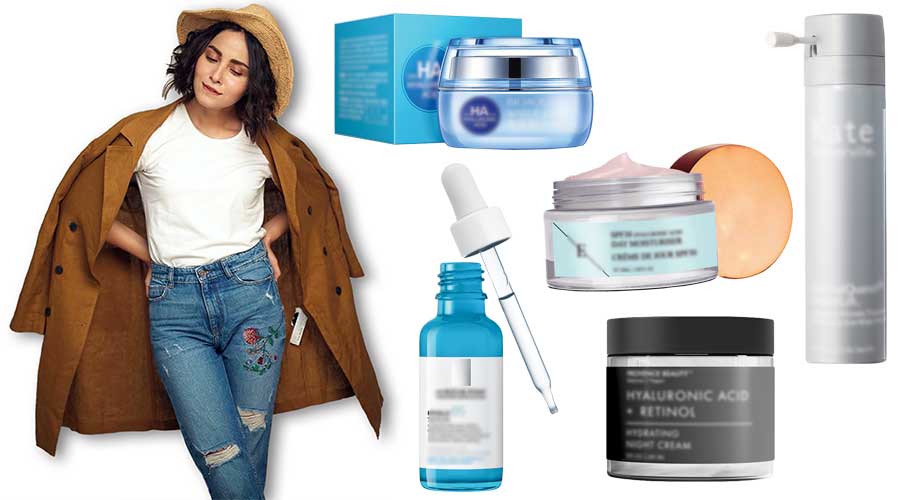12 Tips to Get Glowing Skin This Summer!
- 20 Apr - 26 Apr, 2024
Hyaluronic acid, although somewhat difficult to say (and even harder to spell), the skin-care ingredient, commonly found in your favourite serums, sheet masks, and moisturisers, is an important addition to your daily skin-care regimen. That's because the ingredient, a molecule that occurs naturally in the skin, binds to water to plump up your skin and give it that dewy, glowy effect. But hyaluronic acid does so much more than boost skin's moisture levels, which is why we have compiled the benefits of the ingredient.

What is hyaluronic acid?
First things first – what exactly is hyaluronic acid? For starters, it’s a molecule that is naturally found in your skin as well as the connective tissue in your body. Hyaluronic acid is a naturally occurring polysaccharide found in the human body. It acts as a cushioning and lubrication agent for our joints, nerves, hair, skin, and eyes.
Basically, hyaluronic acid increases hydration in the skin, which can keep your skin looking fresh, full, and bouncy. The collagen in our dermis forms the structure of the skin. Natural hyaluronic acid is bound to collagen on one side and links to water molecules on the other, giving skin its plumpness.
Benefits of hyaluronic acid
The reason the beauty industry loves it so much lies in its seemingly magical ability to retain moisture. Studies have proven that hyaluronic acid is amazingly good at bonding with water molecules, making it a key factor in retaining skin moisture? Lack of moisture is one of the main culprits of aging skin, which is why this ingredient – which attracts moisture to your skin – is a must-have when it comes to repairing your skin’s moisture barrier.
• Retains moisture: Hyaluronic acid helps replenish and hold cell moisture, leading to hydrated, plump skin.
• Reduces the appearance of wrinkles: Since dehydrated skin is one of the main causes of wrinkles, hyaluronic acid replenishes lost moisture and helps reduce the appearance of any fine lines.
• Safe option for filler: Since hyaluronic acid's composition is so closely-related to substances in our bodies, it works well as a filler that doesn't cause major irritation.
• Fast absorbing: Unlike some skincare products, hyaluronic acid quickly absorbs into the skin, meaning you lose less product.
• Non-irritating: For the most part, hyaluronic acid is non-irritating and safe for use with all skin types.
• Multiple forms of use: Since you can use hyaluronic acid topically, have it injected, or take it as a supplement, there are plenty of options for how and when you use it.
• Available over-the-counter: Unlike some super skincare ingredients, hyaluronic acid products are available in most beauty and drugstores.
Side effects of hyaluronic acid
Generally, there aren't any known side effects of hyaluronic acid – at least, the topical versions. But hyaluronic acid is often used as a filler, and therefore can cause side effects. There may be swelling. But, since HA's so closely-related to natural substances already in the body, most reactions are from the injection itself, not HA.
If you choose to ingest hyaluronic acid, it is proven to reduce the appearance of wrinkles and improve the overall plumpness of skin. Plus, most people find that the supplement doesn't have side effects.
COMMENTS